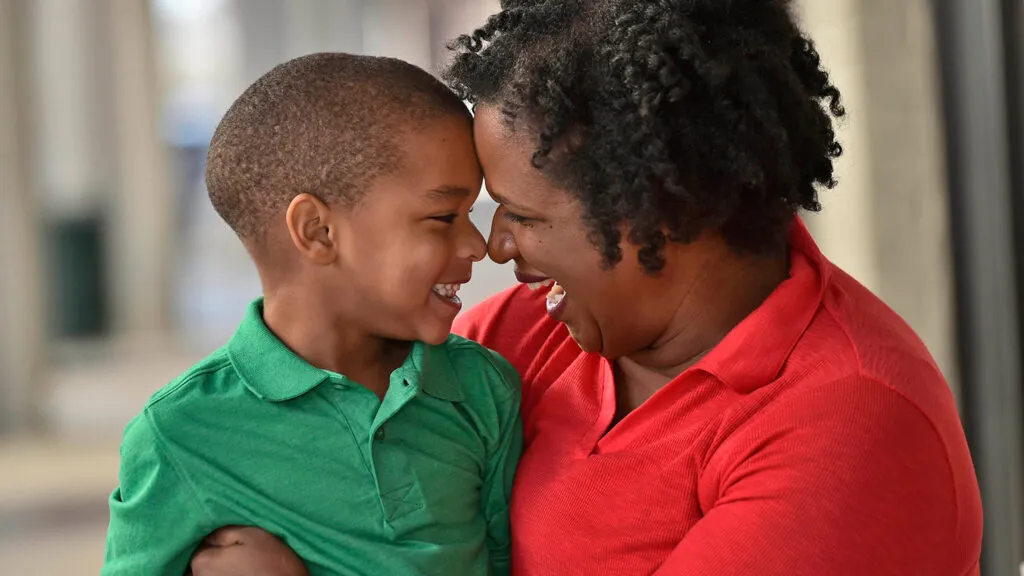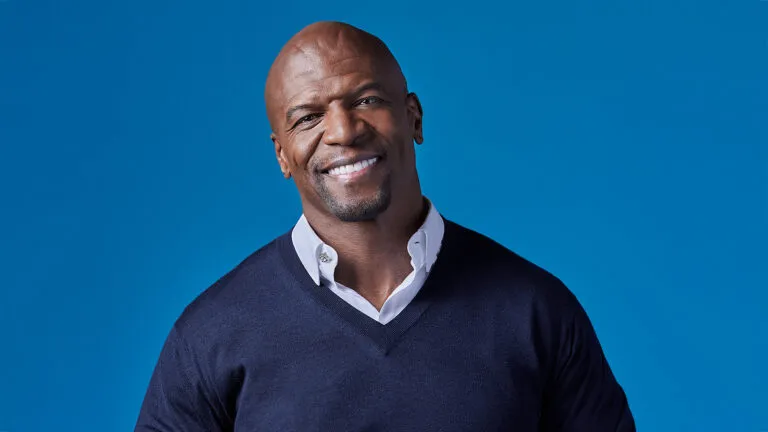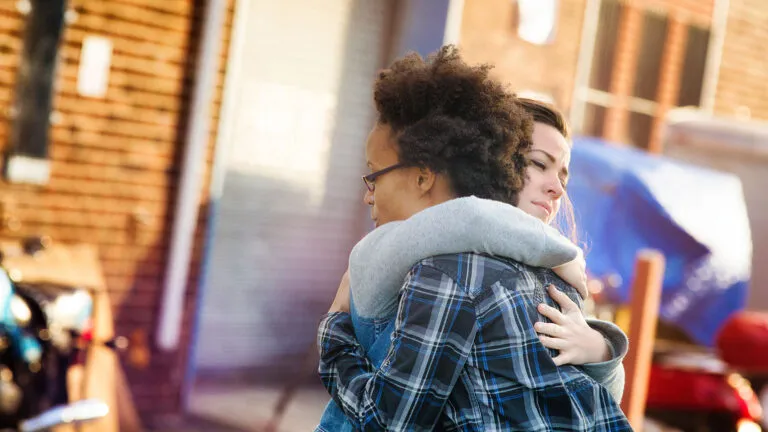I’ve always considered myself the sort of person who gets things done—a mom, wife, playwright and worship manager at our church. Need a drama for church on Sabbath? No problem. One of my kids up all night with a flu bug? I can handle that. Husband’s job takes him out of town for a week? We’ll manage. No challenge is too big for me as long as I depend on my “call and answer” relationship with God. I’ve always called on God. There was a time, though, when I thought he’d stopped answering.
It started when I was expecting twins. My husband, Paul, and I had two children already, five-year-old Ethan and one-year-old Layna. I figured twins would be a challenge, but I hoped they’d be a double blessing as well. And as always there was prayer. Then, at 32 weeks, my water broke.
We already had the babies’ names picked out—Hope and Caleb. The twins were in the NICU for their first two weeks. I spent all my time with them, cuddling them, rubbing their backs, humming to them. Still I was stunned when the pediatric audiologist informed me that Caleb had failed his hearing test in both ears.
So our journey began.
BROWSE OUR SELECTION OF BOOKS ABOUT PRAYER
I was exhausted. I never guessed that twins would each have their own feeding schedules independent of the other. In the wee hours of the morning, it was Hope at 1:00, Caleb at 2:00, Hope again at 3:00, Caleb at 4:00. It always took Caleb longer to settle down. He didn’t respond to any auditory stimuli, not even my voice. I couldn’t calm him with a soft song or lullaby. I was so tired I could barely pray, yet I still did.
Early one morning, when I was walking a very fussy Caleb around the room, I remembered a trick my sister had showed me when she was in medical school. She’d hit a tuning fork on the table and pressed it behind my ear. I could hear the vibration. Maybe Caleb could hear vibrations too. I held Caleb up, put my mouth right behind his tiny ear and hummed one of my favorite Donnie McClurkin songs in the lowest octave my soprano voice could muster. I could feel his body relax against my chest, and he finally drifted off to sleep. Had he heard me?
We tried more sounds and discovered that Caleb would react to lower frequencies. One night I was sitting in my parents’ den and Caleb was lying on my mother’s chest. Something we said made my father laugh. When he clapped his hands, Caleb jerked. “Did you see that?” my mom said. “Do it again, Murphy.” He did, and Caleb reacted again.
The audiologist was perplexed. “This baby should not be able to hear,” she said. “But he can, he can!” we said. If a door slammed or someone sneezed loudly or Paul said something in his baritone voice, Caleb would turn his head. The audiologist concluded he had a high-frequency hearing loss. At least we had a diagnosis and a name for Caleb’s hearing deficit. I could pray specifically now.
It was disconcerting that he didn’t babble like other kids—no “babababa” or “mamamama.” We started weekly appointments with a speech therapist. When Caleb was one year old, the therapist said he needed hearing aids. “Our office will lend you a pair,” she said, pressing them into my hand. I knew they were expensive. If we had to buy them, they’d be $3,000, plus $300 for ear molds that would have to be resized each time he had a growth spurt. How would we ever be able to pay for something like that? Like most medical insurance companies, ours didn’t cover hearing aids.
The ear molds were flesh-colored, naturally, and that first day Caleb took one out of his ear, inspected it, dismantled it and dropped it on our thick beige living room carpet. We scrambled to find it. What would happen if he lost one? We’d never be able to afford replacements, even if we figured out how to swing the first pair. Paul is a social worker, and I’m a freelance playwright and director. We had four children to care for, and as with most families, money was tight. How were we going to afford hearing aids? “God,” I prayed, “you know he needs these.”
The speech therapist suggested we apply to the Children’s Rehabilitation Services of Alabama, an assistance program that provides support for children with special health-care needs. I bristled at the idea. It was a matter of pride for me. Plus, we have a running joke in our family that we would always make one dollar over the amount necessary to qualify. “Just fill out the form,” the therapist urged me. “Do it for Caleb.”
Imagine my surprise when a woman from Children’s Rehab called us and told me that we had been approved for the entire cost of the hearing aids, plus unlimited ear molds, until Caleb turned 18. I was on top of the world. God had come through again! By age four, Caleb was just like any other kid. Thanks to the speech therapy, he could talk up a storm when he wanted to.
At last, we finally got some normal back in our lives.
One afternoon, I was getting dinner ready. Caleb sat at the kitchen table coloring. I noticed him gazing into space. I thought maybe he was looking out the window, but it was a dead stare.
“Caleb,” I said. He didn’t respond. “Caleb,” I called again. Nothing. I reached out to touch him. He blinked a few times, looked up at me and returned to his coloring. It was very weird. I’d never seen him drift off like that before. A week later, I was tucking the kids into bed and listening to their prayers. Caleb stopped in the middle of his sentence, and his eyelids began fluttering. I thought he was goofing around. “Caleb, let’s not be silly while we say our prayers.” He stopped, said good night but never finished his prayer.
Keeping Up with the Joneses: The Joys of a Faithful Family
It kept happening. He’d go blank for a few seconds, and we never knew when it would happen: in the bathtub, getting out of the car, playing outside. He once even froze while climbing on a stool, as if someone had pressed the pause button. We had to hurry to catch him before he hit his head on the floor. Something was terribly wrong.
We added another specialist to the list—a pediatric neurologist. There were more tests, more monitoring from us. I hated hovering around Caleb. It seemed so unfair for a kid. Seven or eight times a day, he’d have an episode. At night I’d go into his bedroom just to watch him, worried he might have one in his sleep and stop breathing.
Once, we were at the doctor’s office and the nurse was drawing Caleb’s blood. “Mommy,” he asked, wincing in pain, “why are you letting them do this to me?” I knew what we were doing was necessary, but his words broke my heart.
The neurologist finally gave us the official diagnosis. Caleb had a form of epilepsy. She was very measured, offering some hope. It was possible that he would outgrow this. Kids did. But in the meantime, he’d be put on a very strong medication that he would have to take twice a day, every day, for at least the next three years.
Paul was with me. He could tell I was undone. “I’ll take the kids home in my car,” he said. I trudged out to the parking lot to sit in my empty car.
Suddenly I felt a rage rise up within me, like a storm. All that praying, all that trusting God for answers. Where had it led? Why was God doing this to us? We had been running back and forth to doctors’ and therapists’ appointments since Caleb’s birth. When would it end? All my life, I’d been so confident—just talk to God, do the next thing and let the answers come.
Well, I wasn’t talking about it anymore. I was done with all the stuff about how God never gives you more than you can handle. Nonsense. I knew that other people handled way more than we were, but what we had was way too much for me! Clearly, God was finished with answering my prayers. Maybe I’d met my quota.
Come on, God. Something’s gotta give. I didn’t say it out loud, didn’t pray formally, didn’t precede it with a “Father God” or “Humbly I ask” or even “Dear Jesus…” All I could share was my anger and frustration. God wasn’t listening anyway.
Two weeks later, our children’s choir was singing at Oakwood University Church, right across the street from First Church, which is our church. I couldn’t be there for the whole service, but I was able to slip into the balcony halfway through. I could see my husband sitting on the lower level, near the choir stand. All of the sudden, Paul left and returned with Caleb, who sat in his lap. I knew something was up. The choir was still singing!
“Everything okay?” I texted him. “Why’s Caleb with you?”
“He’s fine. He says he doesn’t want to sing in the children’s choir anymore. He said it’s ‘louder, louder.’”
I thought maybe Caleb’s hearing aids needed to be readjusted. Or maybe my quiet, introverted son didn’t want to join the other kids. Later Paul told me that Caleb had taken out his hearing aids, handed them to him and said, “It’s louder, louder, Daddy!”
The next time the kids’ choir sang was at our church. Once again, Caleb left the group before they were even through, yanking out his hearing aids and handing them over to us. At home we would put the hearing aids back in. He would take them back out. “I don’t need my ears,” he said.
I had to carry the hearing aids to his next appointment with the audiologist; Caleb refused to wear them. She took him into a soundproof booth and ran him through a test of dozens of sounds. When she came out, she sat down with me. I expected her to say something like “We’ll need to lower the level on his hearing aids.” What she said instead was, “According to the test, he doesn’t need hearing aids anymore.”
“Oh…” I said. I didn’t know what else to say.
“I know his previous test results have shown he needs them, but he heard all those frequencies today,” she said. “I’m recommending that he function without them from now on.” We had been told repeatedly that his particular kind of hearing loss never gets better. It either stays the same or gets worse. But not Caleb. Miraculously, Caleb could hear.
I came home and put the twins down for a nap. Then I sat down in the kitchen and cried. I couldn’t stop. Tears of relief, tears of gratitude. I thanked God over and over again. I don’t think I’d realized what a burden I’d been carrying all those years. God had heard my silent prayer in the car and said, “Let me take part of this load from you.”
I still can’t believe it at times. Caleb detects all sorts of sounds. For instance, my iron makes this high-pitched beeping noise before it automatically turns off. I don’t think I’d ever really noticed it. Not until he did. “Mom, what’s that noise?” he exclaimed.
Caleb still needs the epilepsy medication. There are plenty of hurdles ahead with that particular issue—as there will be issues when you’re raising any child. But I never think for a moment that I’m doing it alone. From time to time, just to reassure myself, I’ll whisper Caleb’s name when I’m a room away from him. He’ll come running in. “Yeah, Mom?”
“Yes,” I say to myself. Caleb hears everything and so does God.
For more inspiring stories, subscribe to Guideposts magazine.





